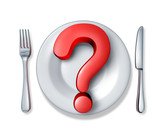
Put Good Things In, Expect Good Thing to Come Out!
In fact, you don’t even need to count calories. While it can be helpful if you have a particularly hard time losing weight, the variables that go into how many calories you burn are so numerous (from weight, to height, to age, to metabolism, to sex, to genetics) that even the most diligent estimates can be off by a couple hundred calories. Far more important is for you to watch what you eat: put good things in, expect good things to come out.
Cut down on fat, but keep the good fat. If you’re trying to lose fat, it might seem the easiest way is to just cut fat from your diet entirely, but that’s not quite true. The fat on our bodies is actually created by excess calories, which can indeed be converted from fat, but also from carbohydrates and protein. You need fat as part of your diet, but you should focus on the healthy kinds, like omega-3 fatty acids and non-saturated fats.
When you fry or sauté your food, switch out butter for olive oil or canola oil. Extra virgin olive oil also goes well on salads. Also go after nuts (without salt added!) and avocados. These foods are particularly good once you have lost fat and are looking to add muscle.
Eat protein, particularly after working out. Protein is pivotal to building muscle, especially after an intense workout. If your workout is strenuous enough, the body enters a catabolic state and starts breaking down your muscles to use for energy. Protein reverts your body back to an anabolic state and helps restore and build the muscles used during the workouts.
Related Links
Leave A Comment